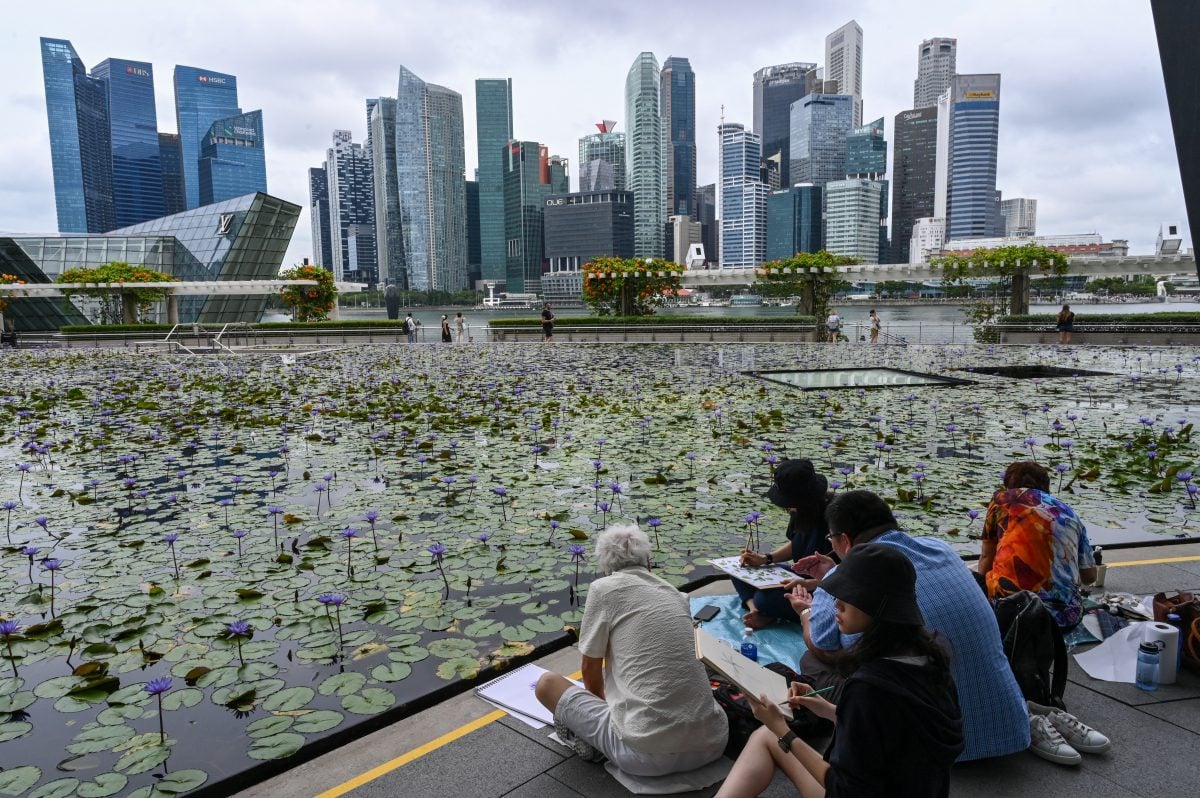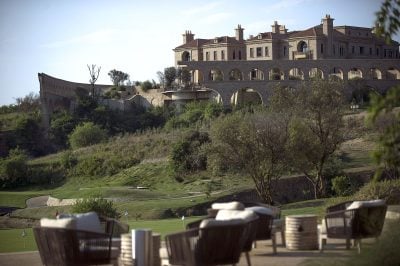Of all Singapore’s achievements, perhaps the most extraordinary is its success in turning what was a poverty-stricken colonial port city into one of the world’s most modern urban centres. Any visitor to Singapore will quickly appreciate the scale and efficiency of its public transport system, the relative lack of traffic congestion, and its ingenious use of limited space. Singapore has managed to squeeze six million people onto its small island, and found room for world class port facilities, a huge international airport, large-scale industrial zones, and even extensive defence infrastructure – all while preserving vast swathes of tropical greenery.
Singapore’s status as one of the world’s most modern and liveable cities has attracted admiration from around the world. Many cities have attempted, with mixed results, to emulate what Singapore has achieved with innovative urban design and planning.
And in recent years Africa has joined the race to tap into Singapore’s urban design expertise. “Across Africa, the majority of the countries would like to emulate Singapore in our journey of having gone from a third world country to a first world nation in the span of one generation,” says Rahul Ghosh, global markets director for the Middle East and Africa at Enterprise Singapore. “We are a natural partner to Africa.”
Rwanda master plans
While challenges differ from city to city in Africa, the reality is that the continent’s large urban areas present a dramatic contrast with Singapore. There is little public transport other than informal minibuses in many African metropolises. All the continent’s megacities suffer from massive, unplanned sprawl. And, across Africa, flooding and other environmental problems are worsening as precious green space is swallowed by development.
Africa’s urbanisation challenges will only grow, with the continent’s urban population set to double from 700m to 1.4bn by 2050. Against this backdrop, it is no surprise that African cities are looking to Singapore for help.
Ghosh notes that Singapore’s involvement in urban design in Africa has come about partly through government agencies introducing Singaporean companies to opportunities to address demand in Africa. “Many companies are proactively looking to diversify, and hence Africa becomes a market they’d like to target,” he adds.
One of the first Singaporean companies to become heavily involved in urban design challenges in Africa was Surbana Jurong, an urban consultancy that grew out of Singapore’s famous Housing & Development Board. In 2008, Surbana Urban Planning Group – one of the current company’s predecessor entities – was selected to develop a master plan for central Kigali.
The original vision was followed by a master plan covering the entire city in 2013, which was then revised and updated in 2018 to provide a blueprint for the city’s growth to 2050.
Allen Xiao, assistant professor of geography at the National University of Singapore, says the success of Rwanda-Singapore collaboration in urban planning is evidenced by how Rwanda has taken the plans prepared by Surbana Jurong “very seriously” and begun implementing them. This stands in contrast to planners’ frequent experiences around the world in preparing visions that are left to gather dust.
Rwanda’s decision to invite Surbana Jurong back to the country for repeated engagements highlights its commitment to the relationship, notes Xiao. The company also delivered master plans for six other Rwandan cities in 2021.
Xiao highlights how Singapore’s engagement in Rwanda has helped the central African country build its own expertise in urban design. The 2050 Kigali master plan “involved more and more local participation from Rwanda,” he says, as Rwandan planners sought to adapt ideas to their own context more than in the past.
Growing opportunities
As well as master planning, there are various other areas of urban design where Singaporean companies are active in Africa. Singaporean expertise in “smart cities” – a concept based on maximising the use of technology to make cities function more efficiently and sustainably – is highly sought after around the world. “Where we see the immediate need, and where we’re getting a lot of enquiries, is around smart traffic management,” says Ghosh, who adds that better management is “the need of the hour” in heavily congested African cities like Lagos and Cairo.
A smart city approach to managing traffic could involve installing networks of sensors and cameras to identify traffic volumes. This data can then feed into systems that regulate traffic flows, for example by adjusting traffic signals to help reduce congestion. Singaporean company ST Engineering is considered a world leader in the space.
Ghosh also highlights the need for high grade commercial and office spaces as multinational companies become more active in Africa and local firms expand across the continent. Related to this, he flags increased demand for modern residences, including serviced residences, that cater to the needs of business leaders.
Singaporean company Ascott opened its first serviced residences in Nairobi in 2022 and the company plans to open a second facility, “perched stylishly in a safely gated community” near the city centre, later this year.
As Africa’s real estate sector starts to generate greater interest from investors, Ghosh says a key lesson that African cities could take from Singapore is to ensure that assets appreciate in value. Achieving this, for both commercial premises and affordable housing, depends on “good facilities management,” he says, noting that several Singaporean companies offer services in the facilities management sector.
Green challenges
Singapore, sometimes called a “City in a Garden”, prides itself on its tree-lined streets and urban parks. Green buildings have also become a major focus. The Singapore Green Plan sets a target to ensure 80% of buildings in the city state are “green”, meaning they meet minimum environmental standards, by 2030.
One of the companies seeking to export expertise in green buildings to Africa is GreenA Consultants. Farizan d’Avezac de Moran, the company’s senior partner, says that public and private sector property owners in African cities such as Kigali do not want to be “left behind” when it comes to installing green buildings.
As cities in the region suffer from growing climate change impacts, including water shortages, making buildings more resource efficient is a key priority, she says. “This all adds up to why sustainability in the built environment is super important.”
GreenA has worked on numerous projects in East Africa, including on environmental design services for residential, office and leisure facilities in Rwanda.
But d’Avezac de Moran cautions that property developers in Africa still tend to feel there is a “question mark” around the business case for sustainability. Even when green designs are successfully installed, the benefits can be lost if facilities are not properly maintained. Perseverance, she says, is vital if Singaporean companies are to succeed in Africa.
It is clear that for African cities, emulating Singapore will be no easy task. The Singapore model cannot simply be copied and pasted. Neglected slums will not grow into gleaming metropolises overnight.
But African cities might take inspiration from how Singapore was able to transform its urban fortunes very quickly. Forty years ago, the city had no metro rail network. Today, its Mass Rapid Transit system boasts six lines, carrying over three million passengers a day.
Singapore’s lesson for Africa, and the world, is that good planning and focused implementation are vital ingredients for the cities of the future.
Want to continue reading? Subscribe today.
You've read all your free articles for this month! Subscribe now to enjoy full access to our content.
Digital Monthly
£8.00 / month
Receive full unlimited access to our articles, opinions, podcasts and more.
Digital Yearly
£70.00 / year
Our best value offer - save £26 and gain access to all of our digital content for an entire year!

 Sign in with Google
Sign in with Google 



